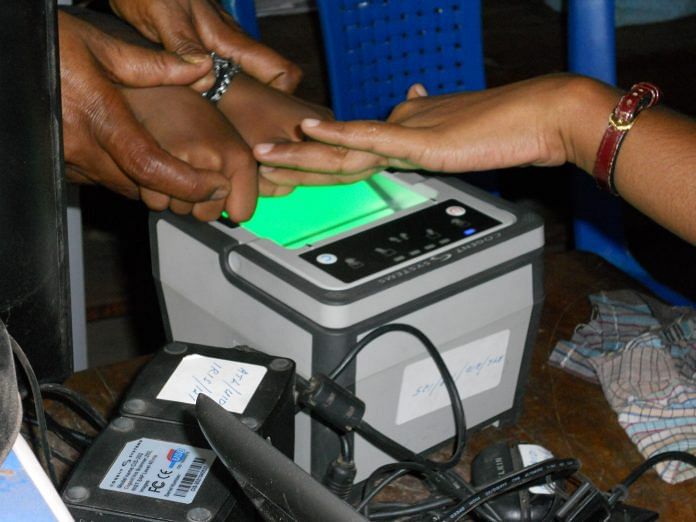The DNA regulation bill will allow law enforcement agencies to collect DNA samples to create “DNA profiles” and “special databanks”.
New Delhi: More than 15 years after it was first conceptualised, the Union Cabinet Wednesday cleared a bill that allows law enforcement agencies to collect DNA samples to create “DNA profiles” and “special databanks” for forensic-criminal investigations.
The DNA Technology (Use and Application) Regulation Bill, 2018, was first envisaged as a DNA “profiling” bill by the department of biotechnology in 2003. Apart from providing for a “crime-solving” database, the bill also aims to set in place a mechanism to use the collected DNA and enable cross-matching between persons who have been reported missing and unidentified bodies.
The bill provides for a DNA profiling board, which would be the final authority to decide on the accreditation and regulation of labs that provide DNA testing and analysis, and approve the methods of collection.
It has, however, sparked privacy concerns over the safety of the data collected and earned criticism of profiling as the bill allows the caste of an accused to be collected.
15 years in the making
The idea was first mooted by the department of biotechnology in 2003 when the Atal Bihari Vajpayee-led NDA government was in power.
In 2007, the DNA profiling advisory committee, which had been put together by the department, formulated the Human DNA Profiling Bill, 2007. The bill went through a series of changes till 2012. In January 2013, a committee of experts was formed to scrutinise the 2012 draft, but the panel made little headway.
Till late 2014, the committee continued to deliberate and make changes to the draft Bill, before it was circulated within the ministry of science and technology for comments. Changes were then incorporated into the draft and by January 2015, the revised document had wound its way to the legislative department of the ministry of law and justice.
What will the national DNA database look like?
The bill proposes to set up a DNA profiling board to head the national DNA data bank and a number of state or regional data banks that will feed into the national data pool.
With 11 members, the board is supposed to be the regulatory authority that will grant accreditation to DNA laboratories and lay down guidelines, standards and procedures for their functioning. Furthermore, the board shall also be the authority to make recommendations on ethical and human rights, including privacy, issues related to DNA testing.
Every data bank will have six categories under which DNA profiles will be filed — crime scene index, suspects’ index, offenders’ index, missing persons’ index, unknown deceased persons’ index, and volunteers’ index. Along with this, the DNA profiling board will have the power to include more categories.
In the offenders’ index, the DNA information will be linked to the name of the person from whom it was collected. All others will be linked to a case reference number.
Even though the bill allows for DNA information of offenders to be expunged once a court acquits them or sets aside a conviction, it makes no provision for removing other kinds of profiles.
Entry and exit from the database
The draft bill proposes including the profiles of those under the scanner of the criminal justice system. Along with DNA data, it calls for a person to provide their name, gender, address, and controversially, their caste.
Activists argue that tagging caste onto genetic data can result in unfair profiling and identification errors, as the country has a history of linking caste and community with criminality. It could, activists say, lead to harassment of certain communities.
Worse still, the bill does not set a limit to how long someone’s DNA will kept on record.
While the bill does specify that “no bodily substances shall be taken from a person who is arrested as an accused of a crime (other than the specified offences) unless the consent is given for the taking of the bodily substances,” it also says that all information contained in the crime scene index shall be retained.
This, in effect, means that anyone who happened to be in the crime scene and left behind any DNA would also be included in the database.
For such cases, the bill states, the director of the national DNA data bank shall, “on receiving a written request” from the person concerned “expunge forthwith the DNA profile of such person from DNA Data Bank, under intimation to the person concerned, in such manner as may be specified by regulations.”
If a person has been acquitted in a case or if the case is set aside, the corresponding profile will be deleted. However, someone who’s been wronged by any of the provisions of the bill can approach a court only if he/she approaches the board first and gives it three months to act on a complaint.
Other objections to the bill
The bigger issues with the draft Bill lie with how it plans to safeguard the privacy of the people whose DNA profiles will be stored in the databank. Contamination and theft are other big issues that need to be addressed. The extensive bill fails to clearly specify and restrict who has access to the data bank.
Questions such as whose DNA can be collected and under what circumstances, whether the consent of the individual is required, to what uses the DNA information can be put apart from identifying an individual among others have been repeatedly raised.
Further, it appears that the powers of the Central government supersede the powers of both the DNA profiling board and the courts as the bill states, “no court shall have jurisdiction to entertain any suit or proceeding in respect of any matter which the board is empowered by or under this Act to determine”.



